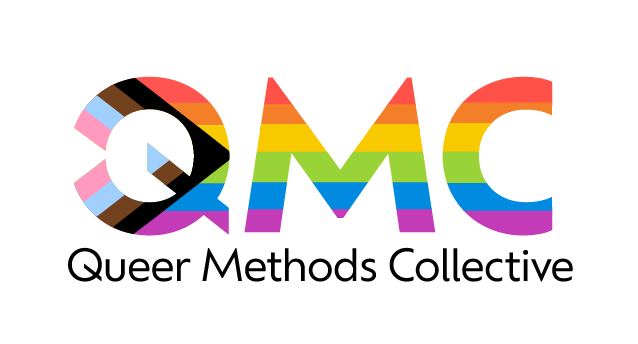Spotlight on Kristen Williams: Exploring Attachment Styles in BIPOC Lesbian Relationships through an Intersectional Lens
At Queer Methods we are committed to showcasing research that expands the understanding of intersectionality, identity, and mental health. Today, we are thrilled to highlight Kristen Williams, a fourth-year PsyD student in Clinical Psychology with an emphasis on Diverse Populations at Mount Saint Mary’s University, Los Angeles. Kristen’s work focuses on the unique experiences of BIPOC (Black, Indigenous, and People of Color) individuals who also identify as members of the LGBTQIA+ community, with a particular emphasis on BIPOC lesbian monogamous couples.
In their upcoming presentation, "The Influence of Attachment Styles on BIPOC Lesbian Monogamous Relationships: Using an Intersectional Framework," Kristen dives into a subject that has been largely underrepresented in psychological research—how attachment styles shape communication within BIPOC lesbian relationships and how intersecting marginalizing forces, such as racism, sexism, and homophobia, impact these dynamics.
Kristen’s work is crucial because it seeks to fill a significant gap in the literature. Attachment theory, rooted in John Bowlby’s research, has long suggested that early relationships with caregivers can profoundly influence emotional and social development. Inconsistent or harsh caregiving, for example, may manifest in adulthood as anxiety, disorganization, and mental health challenges within romantic relationships. However, Kristen takes this a step further by integrating an intersectional framework, examining how BIPOC lesbian couples, who face unique cultural, racial, and sexual identity-based stressors, experience attachment differently.
Their research will be one of the first to closely examine the attachment styles of Latina, Black, African American, and Asian American Pacific Islander lesbian monogamous couples. Through semi-structured interviews with couples, Kristen explores how these intersecting identities influence communication, relationship dynamics, and mental health. Importantly, their study also seeks to uncover how systemic forces like racism and homophobia influence attachment development, providing a more nuanced understanding of how marginalizing forces shape intimate relationships.
One particularly important aspect of Kristen’s study is its focus on representation—specifically, the experiences of Mexican and Latina-identifying lesbian couples. Research on queer women of color, especially regarding mental health outcomes and the intersection of discrimination, violence, and internalized homonegativity, is severely lacking. Kristen’s research is not only vital for addressing these gaps but also for providing much-needed representation of queer women of color in academic discourse.
The findings from Kristen’s research will offer mental health professionals invaluable insights, particularly those providing services to BIPOC lesbian couples. With themes ranging from acculturation and cultural impacts on identity to community connectedness and family acceptance, the study will help practitioners approach treatment with a more intersectional lens, better serving the unique needs of these couples.
Beyond this study, Kristen’s dedication to intersectional research extends into other areas. They are passionate about incorporating music therapy into mental health care for BIPOC communities, using culture and community as healing tools. They are also interested in understanding the intersection of self-esteem, comorbid mental health disorders like ADHD, and how cultural and community factors shape these experiences.
Kristen Williams’ research is a powerful contribution to the field of psychology, helping to decolonize clinical practices and ensure that the experiences of marginalized individuals are at the forefront of mental health discussions. We look forward to seeing how their work continues to shape the future of mental health care for BIPOC LGBTQIA+ communities.
